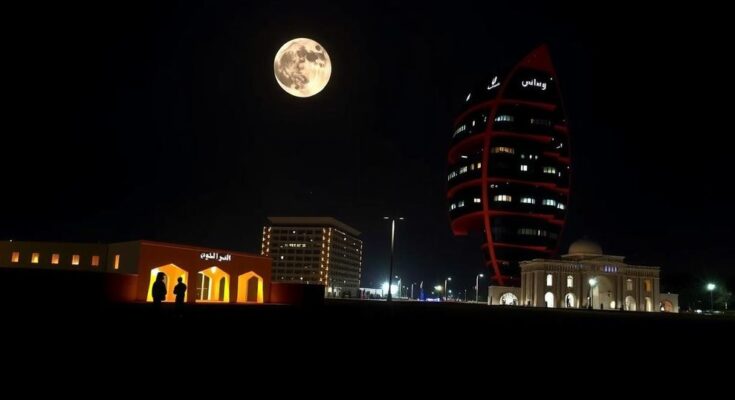Senior US officials have stated that Washington will no longer accept Hamas’s presence in Qatar, as the group has rejected proposals for a Gaza ceasefire. Reports suggest Qatar is set to ask Hamas to close its political office in Doha. This shift is seen as part of the Biden administration’s efforts to secure a peace deal before the end of his term, amidst rising tensions between Israel and Hamas, and growing frustrations in US-Israel relations.
Recent reports indicate that senior officials in the United States have declared that the administration will no longer tolerate the presence of Hamas representatives in Qatar. This shift is attributed to Hamas’s refusal to accept the latest proposals aimed at establishing a ceasefire in Gaza and negotiating a hostage agreement. Qatari authorities allegedly consented ten days ago to instruct Hamas to disband its political office in Doha, where it has been established since 2012 at the behest of the Obama administration to facilitate engagement with the group. The reports have prompted Hamas officials to deny such developments, while the Qatari government has not commented. As a pivotal US ally, Qatar is home to a significant American military air base and has played an essential role in mediating various complex international negotiations, including those involving Iran and the Taliban. Along with the United States and Egypt, Qatar has been involved in attempts to negotiate a ceasefire, which have thus far proved unsuccessful. The recent talks concluded unsuccessfully in mid-October, mainly due to Hamas’s rejection of a proposed short-term ceasefire, as they seek an unconditional cessation of hostilities and complete withdrawal of Israeli troops from Gaza. Tensions have also been high within Israel’s government, with accusations of rejected peace proposals aimed at ending the conflict surfacing. The deteriorating relationship between US President Joe Biden and Israeli Prime Minister Benjamin Netanyahu has further complicated the situation, prompting US officials to express their increasing frustrations over the Israeli administration’s approach to the war. This shift in US policy towards Hamas may indicate an effort by the Biden administration to broker a peace agreement before his term concludes in January.
The situation involving Hamas in Qatar is complex, steeped in geopolitical tensions between the United States, Israel, and various Middle Eastern factions. Since 2012, Doha has served as a host for Hamas’s political leaders, facilitating dialogues that have proven critical for the group’s operations. However, this relationship is now under threat as the US pushes for a firmer stance against Hamas, particularly in light of growing humanitarian crises stemming from the ongoing conflict in Gaza. With the political landscape shifting, especially with the possibility of a change in US leadership, the future of Hamas’s presence in Qatar remains uncertain. Qatar has historically played a nuanced role in Middle Eastern diplomacy, walking a tightrope between conflicting interests including those of Iran, the US, and Israel.
The United States is taking a firmer stance against Hamas’s presence in Qatar, indicating a concerted effort to achieve a ceasefire in Gaza before the Biden administration’s term ends. The relationship dynamics are becoming increasingly strained, particularly regarding humanitarian issues and peace negotiations. As the situation evolves, the implications for regional diplomacy and the future of Hamas’s operations, particularly whether it relocates to another country, will be critical to monitor.
Original Source: www.bbc.com




